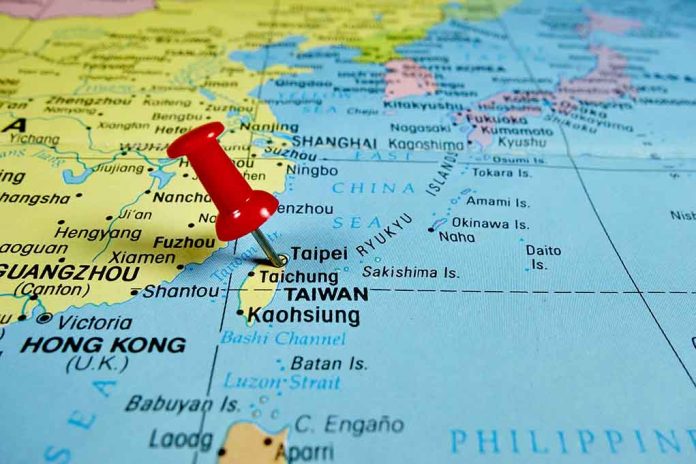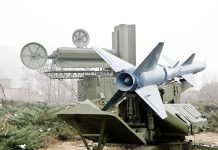
A new $385 million U.S. arms sale to Taiwan strengthens the island’s defense amid rising regional tensions.
At a Glance
- The US approves a $385 million arms deal to Taiwan, including F-16 parts and radar systems.
- Deliveries will start in 2025 for $320 million worth of parts.
- China opposes the deal, viewing Taiwan as part of its territory.
- Taiwan’s defense ministry praises the deal for boosting air defense.
The U.S.-Taiwan Strategic Partnership
The United States recently approved a $385 million arms sale package to Taiwan, which includes spare parts for fighter jets, radar systems, and communications equipment. This transaction affirms the U.S.’s commitment to supporting Taiwan’s military capabilities, serving as a symbol of their enduring partnership. The deal, notified by the Defense Security Cooperation Agency to Congress, reflects the strategic importance placed by the US on maintaining a credible defensive capability in Taiwan.
The lion’s share of the deal, $320 million, is allocated for supplying essential parts for F-16 fighters and radar systems. With deliveries anticipated to commence in 2025, these components bolster Taiwan’s air power. The deal also includes a separate $65 million agreement for tactical communications systems, provided by General Dynamics.
We welcome #US🇺🇸 government approval of arms sales totaling US$385M to #Taiwan🇹🇼, reaffirming its commitment to our defense in line with the #TaiwanRelationsAct & #SixAssurances. We're strengthening our self-defense capabilities to safeguard #TaiwanStrait peace for all. https://t.co/sGgbhLdLyv
— 外交部 Ministry of Foreign Affairs, ROC (Taiwan) 🇹🇼 (@MOFA_Taiwan) November 30, 2024
China’s Reaction and Regional Implications
China, unsurprisingly, opposed this arms sale, asserting that Taiwan is part of its territory. The heightened military activity around Taiwan, including detections of Chinese aircraft and vessels, emphasizes the tension. Despite lacking formal diplomatic ties, the US stands as Taiwan’s largest arms supplier and backer, reinforcing its defense against perceived military threats from China.
“The sale approved by the US Department of State will ensure Taiwan can “meet current and future threats by maintaining the operational readiness” of its F-16 fleet,” per the Defense Security Cooperation Agency (DSCA).
Taiwan has been under pressure to enhance its defenses, citing China’s increased military incursions as a main concern. Strengthening defenses through such arms deals enables Taiwan to tackle ‘grey zone harassment’ more effectively, according to local defense officials.
The Future of U.S.-Taiwan Defense Relations
This deal represents the 18th arms sale to Taiwan under President Joe Biden, reiterating the U.S.’s legal obligation to assist Taiwan’s defense per its policy. Taiwan welcomes this massive support as it seeks to fortify its defense framework while rejecting China’s sovereignty claims and preparing for potential conflicts. “Taiwan and the United States will continue to consolidate our security partnership,” per Sino Daily.
Taiwan’s President, Lai Ching-te’s scheduled visit to Pacific island allies, including stopovers in Hawaii, has added to the tension. The U.S. perceives these visits as routine, while China views them as provocative actions. Both parties remain cautious in progression, striving for stability in a volatile region.














